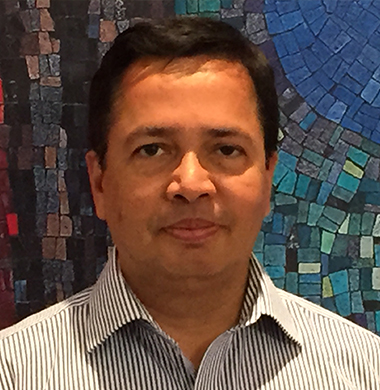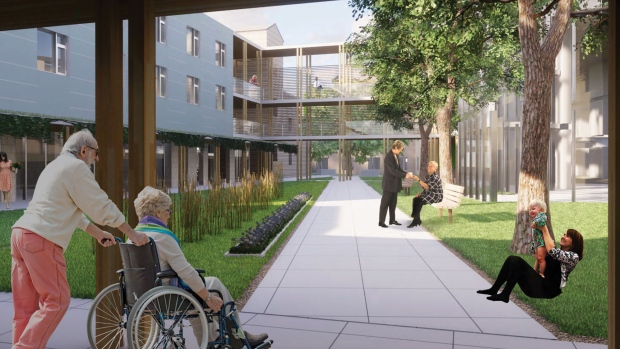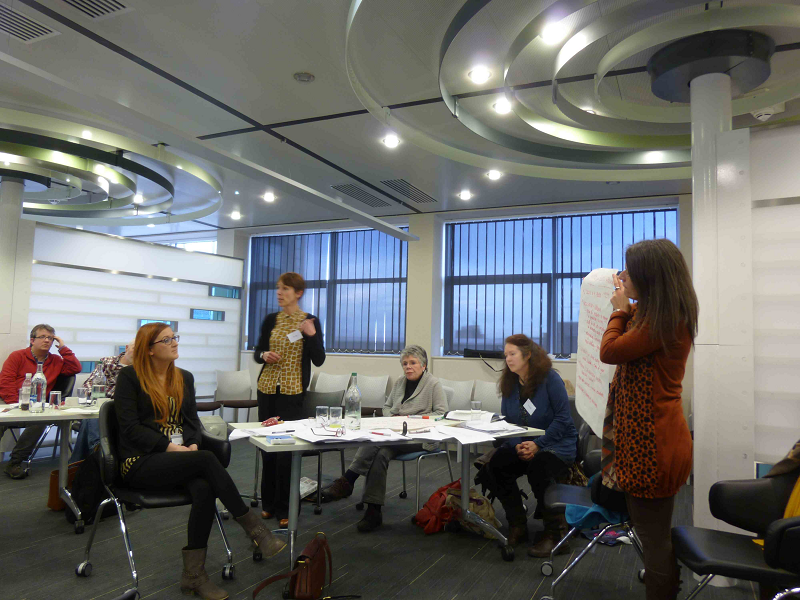“Home is where the heart is” — This classic adage exemplifies the focus of both the research and outreach work of CHÉOS Scientist Dr. Habib Chaudhury, who aims to understand the meaning of home.

Although the idea of “home” may mean different things to different people, there are shared psychological elements of its significance. This is especially pertinent to patients living with dementia, Dr. Chaudhury’s primary research expertise.
“Not only do older people become emotionally attached to their homes, but the deep familiarity of the home environment plays a crucial role in helping people with dementia understand their space and the objects within it,” says Dr. Chaudhury. “Memories of home are part of their identity at both functional and emotional levels of daily activities.”
For older people who have lived decades in one home, having to relocate to a long-term care facility, especially as a result of cognitive decline, can be difficult. Dr. Chaudhury highlights, “Many reactive behaviours — responses caused by something negative, frustrating, or confusing — among residents are due to unsupportive social interactions and problematic environments rather than dementia itself.”
Dr. Chaudhury’s work focuses on addressing environmental factors as they pertain to the health and care of those living with dementia. His repertoire also includes community planning and urban design for active aging.
He currently serves as chair and professor in the Department of Gerontology at Simon Fraser University and has had a unique academic journey that started far from understanding aging.
Finding a research specialty to call home
“During my architectural undergraduate and graduate studies, I felt frustrated by the lack of recognition of the social and psychological role of architecture. What I was learning focused more on architectural theories, traditions, and approaches and less so on how to create spaces and environments that would work well for real people,” shares Dr. Chaudhury. “I was interested in connecting architecture with social sciences and wanted to be part of an interdisciplinary program.”
This passion led him to a doctoral program on Environment Behaviour Research at the University of Wisconsin, which offered an interdisciplinary focus bringing together social science and design disciplines. Then, Dr. Chaudhury worked at the Institute of Aging and the Environment, along with pioneers in the field Dr. Gerald Weisman and Dr. Uriel Cohen, which introduced him to his research specialty — environmental gerontology.
Applying environmental gerontology in real-world settings
Environmental gerontology seeks to understand and provide means to improve the relationship between older people and their physical and social environments.
To enhance the lives of those living with dementia, Dr. Chaudhury is currently collaborating with CHÉOS Associate Director Dr. Amy Salmon on Providence Living’s new project, a dementia village in Comox, British Columbia. This dementia village is an innovative model in dementia care that promises to increase autonomy and mobility for the residents.

Dr. Chaudhury also examines the role of the neighbourhood environment in mobility, wayfinding, and amenity access for people living with dementia who reside in the community rather than a care facility. He is currently the lead investigator on DemSCAPE, a project funded by Public Health Agency of Canada examining the challenges and issues experienced by people with dementia while walking and getting to destinations in their neighbourhoods. Dr. Chaudhury is co-leading the project with CHÉOS Research Associate Dr. Lillian Hung, and colleagues at UBC and UNBC. They’re using semi-structured interviews, surveys, and visual documentation to understand the first-hand experiences of neighbourhood interactions for people with lived experiences of dementia.
Beyond research
Dr. Chaudhury firmly believes in the value of knowledge translation and evidence-based design decisions. Hence, beyond contributing to the academic sphere through journal publications, conference presentations, and invited lectures, he is avidly involved in other knowledge translation activities including outreach work, which includes public presentations and educational workshops.

He offers consulting services to architectural firms to provide evidence-based input when building or remodeling long-term care homes. Additionally, he holds half- and full-day workshops aimed at helping long-term care administrators, facility managers, and staff bring up environment competency and make informed planning and design decisions for renovations and new projects.
Dr. Chaudhury emphasizes, “It’s important to increase the awareness and knowledge of the effect of the care home physical environment and how staff can make even small changes to reduce reactive behaviours and enhance the quality of life for the residents.”
Outside of his work, Dr. Chaudhury enjoys watching movies and reading. A self-described movie buff, he enjoys thrillers and films on social issues. A personal recent favourite film is called “The Father”, a story exploring the relationship between a father (Sir Anthony Hopkins) living with dementia and his daughter (Olivia Coleman).
He enjoys traveling to and exploring culturally and historically diverse neighbourhoods. For him, the best way to experience a city is by walking. Dr. Chaudhury is also deeply interested in mystic and spiritual traditions, particularly Sufism. In the context of spirituality and aging, Dr. Chaudhury recommends “Five Stages of the Soul”, authored by Dr. Harry “Rick” Moody, a leading figure in gerontology. Dr. Moody’s lecture based on this book is also available here.


